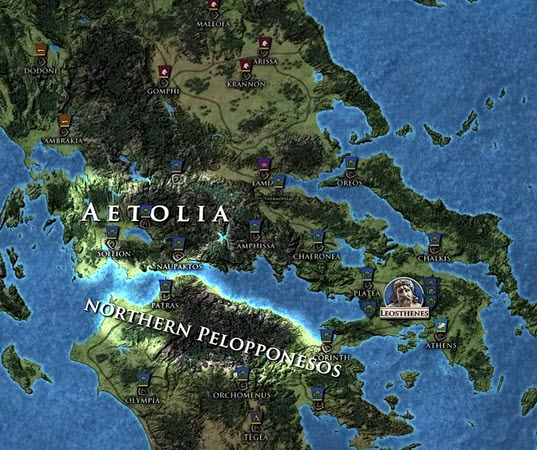
Lamian War, conflict in which Athenian independence was lost despite efforts by Athens and its Aetolian allies to free themselves from Macedonian domination after the death of Alexander the Great. Athenian democratic leaders, headed by Hyperides, in conjunction with the Aetolian Confederacy, fielded an army of 30,000 men in October 323. The commander was the Athenian mercenary Leosthenes, who seized Thermopylae and kept a Macedonian army under Antipater blockaded in the city of Lamía until the spring of 322, when the arrival of Macedonian reinforcements from Asia forced them to raise the siege. Antipater retreated to Macedonia to regroup, but Leosthenes had been slain during the siege. Hyperides’ sixth funeral oration glories in the victory, but the loss of Leosthenes proved fatal to the Greek war effort. Outnumbered and deserted by their allies, the Athenians were defeated at the Battle of Crannon (September 322) and surrendered unconditionally. Abandoning Alexander’s liberal policy, Antipater forced Athens to accept an oligarchical government—with a property requirement for voting that reduced the voting population by two-thirds—and had Hyperides and Demosthenes, leaders of the anti-Macedonian party, sentenced to death.
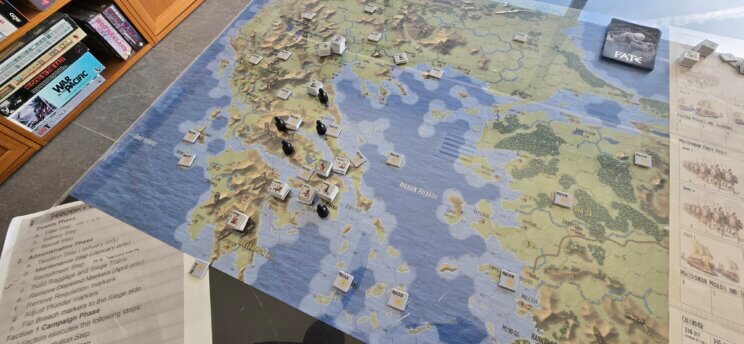
Lets explore this on the maps and with a look at The Fate of All
A little more on the evolution of the Hellenes rebellion from Diodorus Book 18:
9 1 When Alexander died a short time thereafter and left no sons as successors to the kingdom, the Athenians ventured to assert their liberty and to claim the leadership of the Greeks. As a resource for the war they had the sum of money left by Harpalus, the story of which we told in full in the preceding Book,42 and likewise the mercenaries who, some eight thousand in number, had been dismissed from service by the satraps and were waiting near Taenarum in the Peloponnesus.43 2 They therefore gave secret instructions about these to Leosthenes the Athenian,44 ordering him at first to enrol them as if acting on his own responsibility without authority from the city, in order that Antipater, regarding Leosthenes with contempt, might be less energetic in his preparations, and the Athenians, on the other hand, might gain leisure and time for preparing some of the things necessary for the war. 3 Accordingly Leosthenes had very quietly hired the troops mentioned above and, contrary to general belief, p39 had secured a considerable number of men ready for action; for these men, who had campaigned throughout Asia for a long time and had taken part in many great conflicts, had become masters of warfare.
11:
Of the rest of the Greeks, some were well disposed toward the Macedonians, others remained neutral. The Aetolians in full force were the first to join the alliance, as has been said, and after them all the Thessalians except those from Pelinnaeum, the Oetaeans except the inhabitants of Heracleia, the Achaeans of Phthiotis except the people of Thebae, the Melians except those of Lamia, then in succession all the Dorians,47 the Locrians, and the Phocians, also the Aenianians, the Alyzaeans, and the Dolopians, and in addition the Athamanians, the Leucadians, and those of the Molossians who were subject to Aryptaeus. The last named, after making a hollow alliance, later treacherously co‑operated with the Macedonians. 2 Next, the Carystians from Euboea undertook a share in the war, and finally, of the peoples of the Peloponnesus, the Argives, the Sicyonians, the Eleans, the Messenians, and those who dwell on Actê. Now those of the Greeks who joined the alliance were as I have listed them.
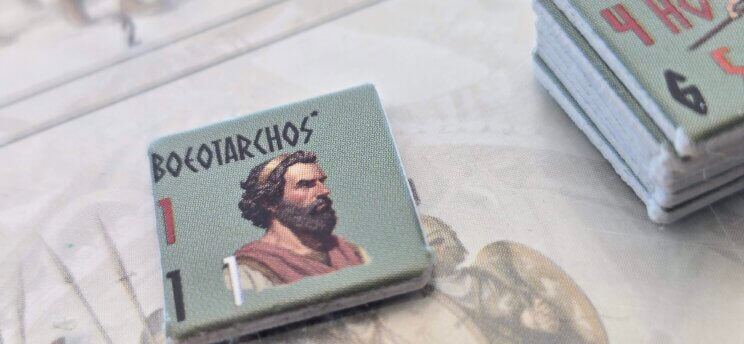
3 Athens sent citizen soldiers to Leosthenes as reinforcements, five thousand foot and five hundred horse, and also two thousand mercenaries. These were to go through Boeotia, but it happened that the Boeotians were hostile to the Athenians for some such reason as the following. After Alexander had razed Thebes, he had given the land to the neighbouring Boeotians. 4 They, having portioned out the property p45 of the unfortunate people, were receiving a large income from the land. Therefore, since they knew that the Athenians, if they were successful in the war, would restore both fatherland and fields to the Thebans, they were inclined toward the Macedonians. 5 While the Boeotians were in camp near Plataea, Leosthenes, taking part of his own forces, came into Boeotia. Drawing up his own men along with the Athenians against the inhabitants, he defeated the latter in battle and, after erecting a trophy, hurried back to Thermopylae. For there, where he had spent some time in occupying the passes in advance of the enemy, he intended to meet the Macedonian forces.
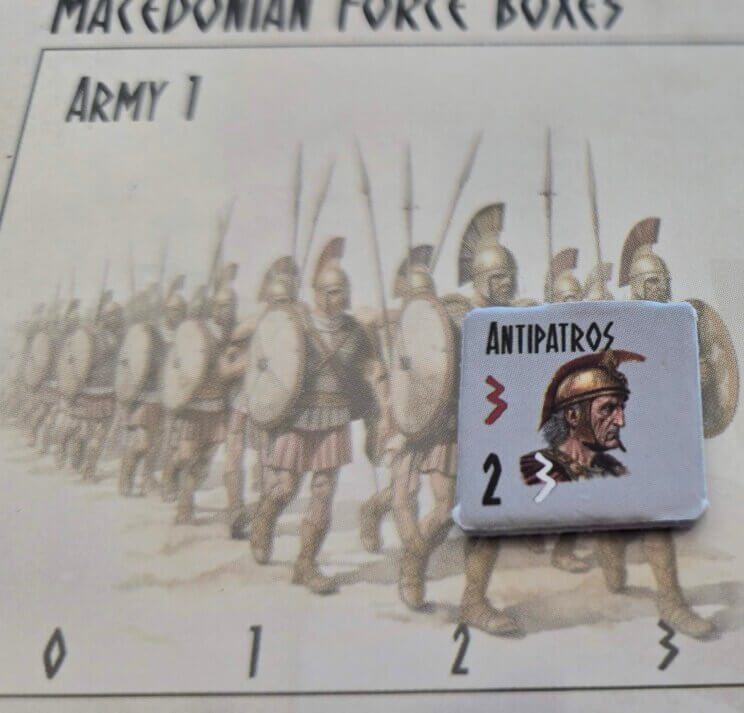
12 1 When Antipater, who had been left by Alexander as general of Europe, heard of the death of the king in Babylon and of the distribution of the satrapies, he sent into Cilicia to Craterus, asking him to come to his aid as soon as possible (for the latter, having been previously dispatched to Cilicia, was going to bring back to Macedonia the Macedonians who had been mustered out of service, being more than ten thousand in number).48 He also sent to Philotas,49 who had received Hellespontine Phrygia as his satrapy, asking him likewise for aid and promising him to give him one of his own daughters in marriage. 2 As soon, however, as he learned of the movement concerted against him by the Greeks, he left Sippas as general of Macedonia, giving him a sufficient army and bidding him enlist as many men as possible, while he himself, taking thirteen thousand Macedonians p47 and six hundred horsemen (for Macedonia was short of citizen soldiers because of the number of those who had been sent to Asia as replacements for the army), set out from Macedonia to Thessaly, accompanied by the entire fleet which Alexander had sent to convoy a sum of money from the royal treasury to Macedonia, being in all one hundred and ten triremes. 3 At first the Thessalians were allies of Antipater and sent out to him many good horsemen; but later, won over by the Athenians, they rode off to Leosthenes and, arrayed with the Athenians, fought for the liberty of the Greeks. 4 Now that this great force had been added to the Athenians, the Greeks, who far outnumbered the Macedonians, were successful. Antipater was defeated in battle, and subsequently, since he neither dared to engage in battle nor was able to return in safety to Macedonia, he took refuge in Lamia. He kept his troops in this city and strengthened its walls, besides preparing arms, engines, and food, while anxiously waiting for his allies from Asia.
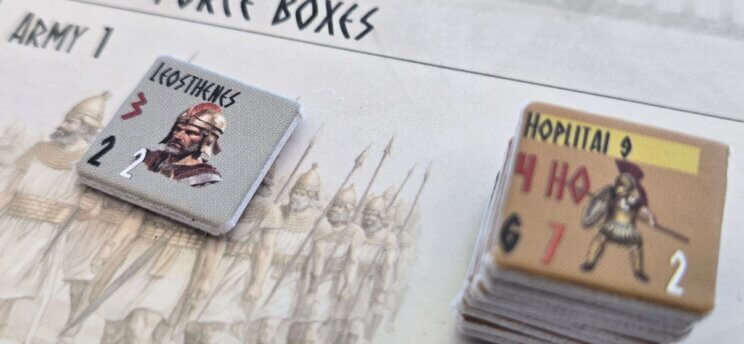
13 1 Leosthenes, when he had come near Lamia with all his forces, fortified a camp with a deep ditch and a palisade. At first he would draw up his forces, approach the city, and challenge the Macedonians to battle; then, as the latter did not dare risk an encounter, he made daily attacks on the walls with relays of soldiers. 2 As the Macedonians defended themselves stoutly, many of the Greeks who pushed on rashly were killed; for the besieged, since there p49 was a considerable force in the city and an abundance of all sorts of missiles, and the wall, moreover, had been constructed at great expense, easily had the better of the fighting. 3 Leosthenes, giving up hope of capturing the city by storm, shut off all the supplies that were going into it, thinking that he would easily reduce by hunger the forces besieged in the city. He also built a wall and dug a deep, wide ditch, thereby cutting off all escape for the beleaguered troops….
5 …For when Antipater made an attack on the men who were digging the moat and a struggle ensued, Leosthenes, coming to aid his men, was struck on the head by a stone and at once fell and was carried to camp in a swoon.50 On the third day he died and was buried with the honours of a hero because of the glory he had gained in war. The Athenian people caused the funeral oration to be delivered by Hypereides,51 foremost of the orators in eloquence and in hostility toward the Macedonians; 6 for at that time Demosthenes, the chief of the orators of Athens, was in exile, convicted of having taken some of the money p51 of Harpalus.52 In place of Leosthenes, Antiphilus was made general, a man outstanding in military genius and courage.
15 1 The Greeks, giving up the siege57 and burning their camp, sent away to the town of Melitia the camp followers, who were useless in a pitched battle, and the baggage train, while they themselves went forward with light equipment and ready for battle in order to engage the forces of Leonnatus before Antipater joined them and both armies came together in one place. 2 They had in all twenty-two thousand foot soldiers, for all the Aetolians had previously departed to their own country and not a few of the other Greeks had at that time scattered to their native states. More than thirty-five hundred horsemen took part in the campaign, two thousand being Thessalians exceptional for their courage. In these especially the Greeks trusted for victory. 3 Now when a fierce cavalry battle had gone on for some time and the Thessalians, thanks to their valour, were gaining the upper hand, Leonnatus, after fighting p55 brilliantly even when cut off in a swampy place, was worsted at every point. Stricken with many wounds and at the point of death, he was taken up by his followers and carried, already dead, to the baggage train.58 4 The cavalry battle having been gloriously won by the Greeks under the command of Menon the Thessalian, the Macedonian phalanx, for fear of the cavalry, at once withdrew from the plain to the difficult terrain above and gained safety for themselves by the strength of the position. When the Thessalian cavalry, which continued to attack, was unable to accomplish anything because of the rough ground, the Greeks, who had set up a trophy and gained control of the dead, left the field of battle.
5 On the next day, however, when Antipater came up with his troops and joined the defeated, all the Macedonians united in a single camp, and Antipater took command of the whole. 6 He decided to avoid fighting for the present and, in view of the fact that the enemy were superior in cavalry, determined not to retreat through the plain. Instead, by going through the rough country and seizing in advance any points of vantage, he made good his retreat from the region. 7 Antiphilus, the Greek commander, having defeated the Macedonians in a glorious battle, played a waiting game, remaining in Thessaly and watching for the enemy to move.
The affairs of the Greeks were thus in thriving condition, 8 but since the Macedonians had command of the sea, the Athenians made ready other ships in addition to those which they already had, so that 57 there were in all one hundred and seventy.59 Cleitus was in command of the Macedonian fleet, which numbered two hundred and forty. 9 Engaging with the Athenian admiral Evetion he defeated him in two naval battles and destroyed a large number of the ships of the enemy near the islands that are called the Echinades.
About the same time Craterus also departed from Cilicia and arrived in Macedonia to reinforce Antipater and to make good the defeats that the Macedonians had suffered.63 He brought with him six thousand foot soldiers from those who had crossed into Asia with Alexander and four thousand from those who had been enlisted on the march, one thousand Persian bowmen and slingers, and fifteen hundred horsemen. 5 Entering Thessaly and freely yielding the chief command to Antipater, he shared a camp with him beside the Peneius River.64 Including those who had been under Leonnatus, there were gathered together in all more than forty thousand heavy armed infantry, three thousand bowmen and slingers, and five thousand cavalry.
17 1 The Greeks who were encamped against them at this time were far inferior in numbers; for many of them, despising the enemy because of their former good fortune, had gone away to their own cities to p61 look after their private affairs. 2 Since many soldiers were absent from duty for this reason, there remained in camp only twenty-five thousand foot soldiers and thirty-five hundred cavalry. They placed their chief hope of victory in the latter, because the men were brave and the ground was level.
3 At last Antipater began to draw up his forces each day and challenge the Greeks to battle. For a while these waited for their men to return from their cities, but since time was pressing, they were forced to come out and stake all. They drew up their lines, placing the cavalry in front of the phalanx of infantry, since they were eager to decide the battle by means of this arm. 4 When the cavalry had met in battle and the Thessalian horsemen were getting the advantage because of their valour, Antipater led out his own phalanx and, rushing upon the infantry of the enemy, began to make great slaughter. The Greeks, since they were not able to withstand the weight and number of the enemy, immediately withdrew to the rough ground, carefully keeping their ranks. Thus they occupied the higher ground and easily repulsed the Macedonians thanks to their possession of the superior position. 5 Although the Greek cavalry had gained the advantage, as soon as the horsemen learned of the withdrawal of the infantry, they at once retired toward them. Then, after such a combat as I have described, the battle was broken off, as the scales of victory swung in favour of the Macedonians. More than five hundred of the Greeks p63 were killed in the battle, and one hundred and thirty of the Macedonians.65
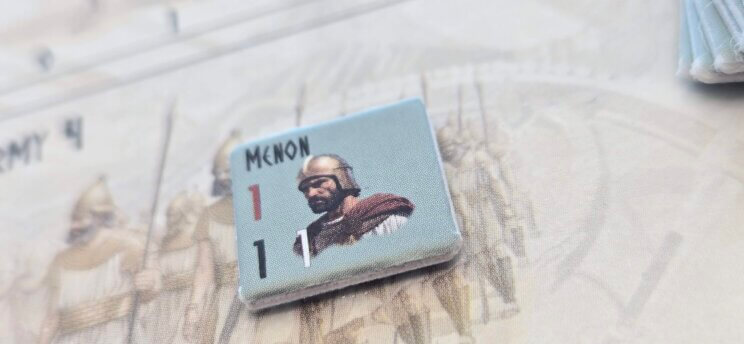
6 On the next day Menon and Antiphilus, the leaders of the Greeks, came together and took counsel whether they should wait for the allies from the cities and then, when they were in position to fight on equal terms, seek a final decision, or, yielding to the present situation, should send envoys to seek a truce. They decided to dispatch heralds to treat for peace. 7 These carried out their orders, but Antipater answered that the cities must negotiate separately, for he would by no means make a mass settlement. Since the Greeks refused to agree to peace terms city by city, Antipater and Craterus began to lay siege to the cities in Thessaly and to take them by storm, since the Greeks could not send aid to them. When the cities were thus badly frightened and each on its own account began to send envoys about a settlement, Antipater came to terms with all of them, granting them peace on easy terms. 8 This resulted in a movement among the cities to secure their safety separately, and all quickly obtained terms of peace; but those who were most hostile to the Macedonians, the Aetolians and the Athenians, deserted by their allies, took counsel about the war with their own generals.
18 1Antipater, after he had destroyed the alliance of the Greeks by this device, led all his forces against the Athenians. The people, bereft of the aid of their allies, were in great perplexity. All turned to p65 Demades and shouted that he must be sent as envoy to Antipater to sue for peace; but, although he was called on by name to give advice, he did not respond. 2 He had been convicted three times 66 of introducing illegal decrees, and for this reason he had been deprived of his rights as a citizen and was prevented by the laws from advising; yet, on being restored to full rights by the possible, he was at once sent as envoy along with Phocion and some others. 3 When Antipater had heard what they had to say, he made answer that he would end the war against the Athenians on no other condition than that they surrender all their interests to his discretion; for, after they had shut Antipater up in Lamia, they had made that same reply to him when he had sent envoys about peace. The people, not being in position to fight, were forced to grant to Antipater such discretion and complete authority over the city. 4 He dealt humanely with them and permitted them to retain their city and their possessions and everything else; but he changed the government from a democracy, ordering that political power should depend on a census of wealth, and that those possessing more than two thousand drachmas should be in control of the government and of the elections.
Next up we will switch to Video and take a look at the opposing sides, goals objectives and capabilities. See if we can develop a plan for both sides from there.